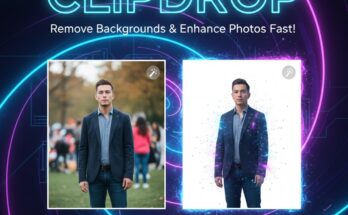In the ever-evolving landscape of quantum computing, one of the most formidable challenges has been mitigating the effects of decoherence – the phenomenon where a quantum system loses its coherence due to interactions with its environment. However, a breakthrough technology has emerged to tackle this obstacle head-on: Decohere.ai.
Introduction to Decoherence and Its Implications
Decoherence poses a significant barrier to the practical implementation of quantum computers. Quantum systems are incredibly fragile, easily perturbed by external factors such as temperature fluctuations, electromagnetic radiation, and even minute vibrations.
As a result, the delicate quantum states necessary for computation collapse rapidly, leading to errors and inaccuracies in quantum computations.
The consequences of decoherence are profound. They limit the coherence time of quantum systems, restricting the duration over which quantum operations can be reliably performed. This, in turn, constrains the complexity of algorithms that can be executed on quantum hardware and undermines the potential computational advantage promised by quantum computing.

Enter Decohere.ai: A Game-Changing Solution
Decohere.ai stands at the forefront of the battle against decoherence, offering a novel approach to mitigate its effects and unlock the full potential of quantum computing. At its core, Decohere.ai harnesses the power of machine learning and advanced algorithms to combat decoherence in real-time, enabling quantum computations to proceed with unprecedented stability and accuracy.
Key Features and Capabilities
- Real-Time Decoherence Monitoring: Decohere.ai continuously monitors quantum systems, detecting and analyzing the onset of decoherence in real-time. By identifying early signs of coherence loss, Decohere.ai can proactively intervene to mitigate its effects before they compromise the integrity of quantum computations.
- Dynamic Error Correction: Leveraging sophisticated machine learning models, Decohere.ai dynamically corrects errors induced by decoherence, effectively restoring the coherence of quantum states. This adaptive error correction mechanism enhances the fault tolerance of quantum algorithms, enabling them to withstand the disruptive influence of decoherence and other sources of noise.
- Optimized Quantum Compilation: Decohere.ai optimizes the compilation of quantum algorithms, tailoring their execution to minimize susceptibility to decoherence. By strategically mapping quantum circuits onto physical qubit architectures and optimizing gate sequences, Decohere.ai maximizes the resilience of quantum computations in the face of decoherence-related challenges.
- Scalable Deployment: Designed with scalability in mind, Decohere.ai seamlessly integrates into existing quantum computing platforms, empowering researchers and developers to harness its capabilities across a wide range of quantum hardware architectures. Whether deployed in the cloud or on-premises, Decohere.ai offers a flexible and scalable solution for decoherence mitigation.
Applications and Impact
The implications of Decohere.ai extend far beyond the realm of theoretical quantum computing, with profound implications for diverse fields ranging from cryptography and materials science to drug discovery and optimization.
By overcoming the barriers imposed by decoherence, Decohere.ai accelerates the pace of innovation in quantum computing, unlocking new opportunities for solving complex problems that were previously deemed intractable.
Conclusion
Decohere.ai represents a paradigm shift in the quest for practical quantum computing, offering a robust and versatile solution to the pervasive challenge of decoherence. With its advanced capabilities in real-time monitoring, dynamic error correction, optimized compilation, and scalable deployment, Decohere.ai empowers researchers and practitioners to harness the full potential of quantum computing with confidence and reliability. As we stand on the brink of a quantum revolution, Decohere.ai paves the way for a future where the transformative power of quantum computing is fully realized.



